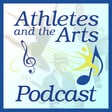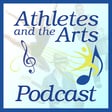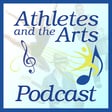
The Classical Pianist Brand with Jeeyoon Kim
Classical music is pervasive and ubiquitous and yet for many people, it is difficult to connect with. We met one classical pianist who makes it her mission to connect with audiences and bring her joy of classical music to the masses. She is the extraordinary Jeeyoon Kim. a multi-hyphenate musician-author-blogger-podcaster-educator-and-performer. Our Athletes and the Arts founder Randy Dick caught up with Jeeyoon recently and he’s here with her on our show today.
For more on Jeeyoon, go to https://www.jeeyoonkim.com
Instagram @jeeyoonkimpianist
X: @jeeyoon_pianist
For Athletes and the Arts, go to www.athletesandthearts.com
Bio: Award-winning classical pianist Jeeyoon Kim has delighted audiences across the United States and the world with her combination of sensitive artistry, ‘consummate musicianship, impeccable technique, and engaging and innovative concert experiences.’ (New York Classical Review)
From the start of her career, beginning with her celebrated 2016 debut album, 10 More Minutes, Jeeyoon has thrilled classical music fans with her artful performances. Through her unique performance presentations, Jeeyoon has connected with concert attendees decidedly younger than the average by engaging in musical conversations from the stage. Her second album and concert project, Over. Above. Beyond., further stretched the mold for classical piano performances by collaborating with New York-based artist Moonsub Shin. Jeeyoon's collaboration with the artist delivered a multimedia experience that was also captured in an award-winning music video. Kim’s following project titled, 시음/si-úm/, began during her 2020 residency at the Banff Centre for Arts and Creativity for their 'Concert in the 21st Century' program. This concert project incorporates poetry and black and white photography. Jeeyoon's dedication to pushing the boundaries of traditional classical music to connect with a new audience has inspired a dedicated and passionate fanbase that defies conventional wisdom.
Jeeyoon began studying the piano when she was just four years old, and her love of music propelled her through her undergraduate studies in piano performance in her native Korea. After moving to the United States, she received her Master of Music and Doctor of Musical Arts in Piano Performance with Distinction from Indiana University’s renowned Jacobs School of Music.
In pursuit of a deeper understanding of music education, she earned a second master's degree in piano pedagogy from Butler University, where she concurrently served as a faculty member. As a testament to Jeeyoon’s abilities as an educator, she was recognized with the 'Top Music Teacher Award' from Steinway & Sons for three consecutive years, from 2016 to 2018.
Jeeyoon is an author, educator, public speaker, podcaster, and award-winning performer. In 2021, she published her first book, Whenever You’re Ready, offering readers a personal glimpse into her life. This self-help book in a concert-style structure shares wisdom and insights gained from Jeeyoon's musical experiences. After a successful reception throughout North America and Europe, the book was published in South Korea in 2022. The book, translated into Korean by the author herself, has made it to the top 3 best sellers in South Korea in the self-help category. Jeeyoon Kim currently resides in San Diego. Between a busy concert touring schedule, she happily practices her piano daily, maintains a studio full of dedicated piano students, and surfs each morning at sunrise.



